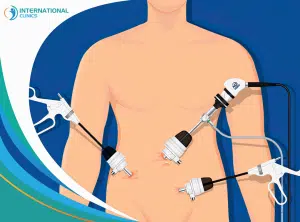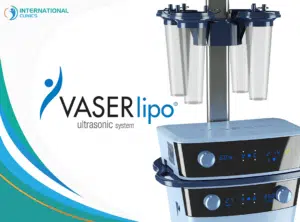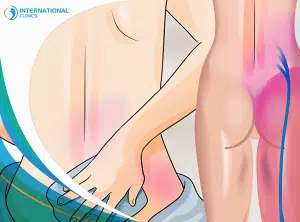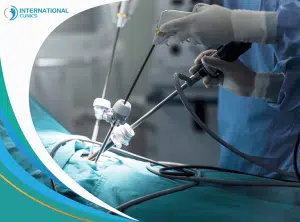Gastric sleeve surgery is a weight loss procedure that involves removing a portion of the stomach. This surgical intervention restricts the amount of food that can be consumed, leading to reduced calorie intake.
Unlike other weight loss surgeries, such as gastric bypass, this procedure is irreversible and requires lifelong changes in eating habits.
But just how safe is gastric sleeve surgery? Numerous studies have shown that this procedure has a high success rate and minimal complications. It is often recommended for individuals with a body mass index (BMI) over 40 or those with obesity-related health conditions.
Overall, the article aims to provide a comprehensive view of the safety profile of gastric sleeve in Turkey, empowering readers to make informed decisions about their well-being.
Take control of your life today by considering gastric sleeve surgery as an option for achieving sustainable weight loss and improving your overall health.

How Safe is Gastric Sleeve Surgery?
Many individuals considering this surgery often wonder about its safety and potential risks. Let’s delve into the topic and address some key points to understand just how safe gastric sleeve surgery in Turkey is.
A High Safety Rate
- Statistics speak volumes. With an overall safety rate of over 95%, gastric sleeve surgery has proven to be a remarkably safe procedure for weight loss. This means that the vast majority of patients who undergo this surgery experience no major complications or adverse events.
Low Mortality Rate
- One crucial factor in assessing the safety of any surgical procedure is its mortality rate. In the case of gastric sleeve surgery, the mortality rate is less than 0.3%. This low figure highlights that the risk of death associated with this type of weight loss surgery is exceptionally rare. In fact, it makes gastric sleeve surgery one of the safest options available for individuals seeking long-term weight loss solutions.
Addressing Common Concerns
- While gastric sleeve surgery boasts high safety rates, it’s important to acknowledge that there are still potential risks involved. Understanding these risks can help individuals make informed decisions about their healthcare choices.
Ensuring Safety
- To further enhance safety during gastric sleeve surgery, it is crucial to choose an experienced surgeon who specializes in bariatric procedures. An experienced surgeon will have a deep understanding of the surgical techniques involved, minimizing the risk of complications. Following guidelines provided by healthcare professionals is essential for a smooth recovery and optimal outcomes
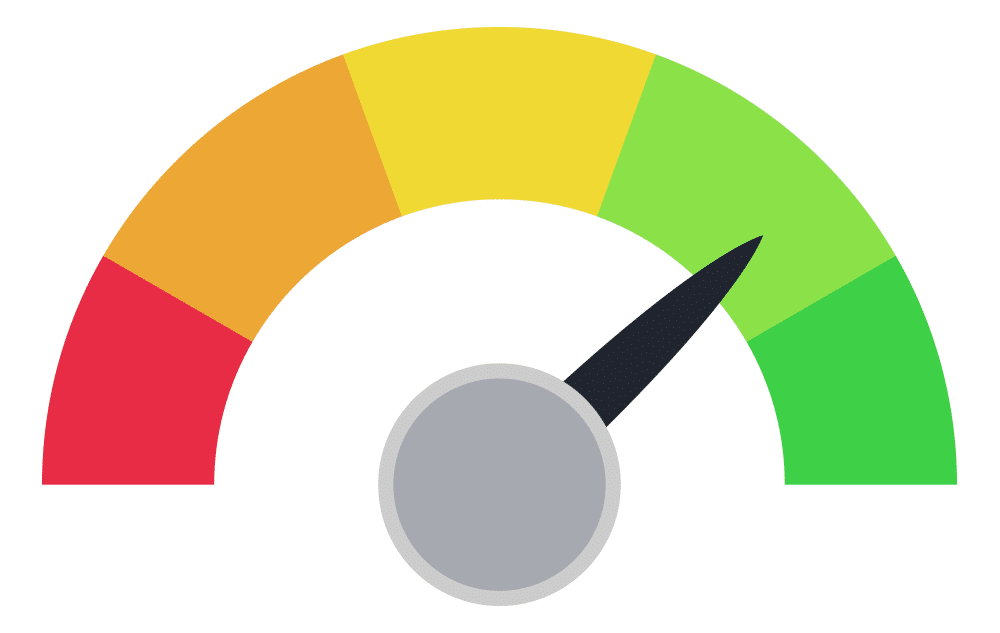
Get a Free Consultation Right Now!
Comparing the Safety of Gastric Sleeve Surgery to Other Weight Loss Surgeries
Gastric Sleeve Surgery: A Safe Choice
Studies have shown that there are no significant differences in long-term safety profiles among different types of obesity surgery in Turkey.
This means that whether you choose gastric sleeve surgery, gastric bypass, or adjustable gastric banding, the risks associated with these procedures are similar.
Digging into the Data
Numerous studies have been conducted comparing the safety of various weight loss surgeries, and they consistently show similar rates of complications across different procedures.
These complications can include infection, bleeding, leaks from surgical connections, blood clots, and reactions to anesthesia.
While all weight loss surgeries carry some level of risk due to their invasive nature, it’s important to note that these risks are generally low. The overall safety record of gastric sleeve surgery is quite good when performed by experienced surgeons in accredited facilities.
Nutritional Deficiencies: A Comparative Advantage
Gastric sleeve surgery doesn’t involve rerouting or bypassing any part of the digestive system; instead, it reduces stomach size by removing a portion of it.
Some surgeries like malabsorptive procedures (e.g., duodenal switch) can lead to higher risks of nutrient deficiencies due to their impact on nutrient absorption.
Patients who undergo gastric sleeve surgery typically experience fewer issues related to nutrient deficiencies compared to those who opt for more complex surgeries.
Also, regular check-ups and monitoring of nutrient levels can help identify and address any potential deficiencies.
Risks and Complications of Gastric Sleeve Surgery
Potential Risks and Complications
- Infection: Like any surgical procedure, there is a risk of infection after gastric sleeve surgery. This can occur at the incision site or within the abdominal cavity. Infections occur in less than 5% of cases and are typically managed through prompt medical intervention and appropriate antibiotics.
- Bleeding: Bleeding during or after the surgery is another possible complication. Surgeons use techniques to minimize bleeding during the procedure and closely monitor patients afterward to identify any signs of excessive bleeding.
- Blood Clots: Blood clots can develop in the legs (deep vein thrombosis) or travel to other parts of the body (pulmonary embolism). To prevent this, patients are encouraged to move around as soon as possible after surgery and may receive blood thinners.
- Leakage: In some cases, leaks can occur along the staple lines used during gastric sleeve surgery. This can lead to serious complications such as infections or abscesses. Surgeons take precautions by using specialized surgical techniques and carefully inspecting for leaks during and after the procedure.
- Strictures: The stomach opening may narrow over time due to scar tissue formation, leading to difficulties in eating or drinking. If strictures occur, they can often be treated with endoscopic procedures to widen the narrowed area.
- Gastrointestinal Issues: Acid reflux and dumping syndrome are common gastrointestinal issues that may arise after gastric sleeve surgery. Acid reflux occurs when stomach acid flows back into the esophagus, causing heartburn or discomfort. Dumping syndrome is characterized by rapid emptying of the stomach contents into the small intestine, resulting in symptoms like nausea, dizziness, and diarrhea. Dietary modifications and medications can help manage these conditions.
Regular Follow-up Appointments
To ensure a safe recovery and monitor for any signs of complications or nutritional deficiencies, regular follow-up appointments with your healthcare team are essential after gastric sleeve surgery.
These appointments allow your surgeon to assess your progress, address any concerns you may have, and make necessary adjustments to your treatment plan.
During these appointments, your healthcare provider will evaluate your weight loss progress, check for signs of infection or other complications, and perform blood tests to monitor nutrient levels.
They may also guide dietary changes, exercise routines, and lifestyle modifications that can support your long-term success.
Minimizing the Risk of Complications
While every surgical procedure carries some level of risk, there are steps you can take to minimize the potential complications associated with gastric sleeve surgery:
- Choose an Experienced Surgeon: Selecting a skilled and experienced surgeon is crucial for reducing the risk of complications. Research their qualifications, expertise in bariatric surgery, and success rates before making a decision.
- Follow Preoperative Guidelines: Your surgeon will provide specific instructions to follow before the surgery. This may include dietary restrictions or lifestyle changes aimed at optimizing your health before the procedure. Adhering to these guidelines helps reduce the likelihood of complications during surgery.
- Adhere to Postoperative Guidelines: After gastric sleeve surgery, you’ll receive postoperative instructions related to diet progression, physical activity limitations, medication management, wound care, and more.
- Attend Follow-up Appointments: Be sure not to miss these appointments and communicate openly with your healthcare team about any concerns or symptoms you may experience.
Preoperative Evaluation and Patient Selection
Before undergoing gastric sleeve surgery, patients go through a comprehensive evaluation to determine their suitability for the procedure.
This evaluation is crucial in assessing their overall health, readiness for surgery, and potential risks. Let’s delve into the key factors considered during this stage.
- Thorough medical history assessment to identify potential risk factors and underlying health conditions.
- Evaluation of body mass index (BMI) to determine eligibility for gastric sleeve surgery.
- Discussion of the patient’s weight loss goals and expectations from the procedure.
- Screening for psychological readiness and commitment to lifestyle changes post-surgery.
- Assessment of any previous weight loss attempts and their outcomes.
- Examination of the patient’s overall health status, including cardiovascular and respiratory health.
- Evaluation of any existing medical conditions that might impact the surgical outcome or recovery.
- Identification of potential contraindications or factors that may make the patient unsuitable for the procedure.
- Discussion of the benefits, risks, and potential complications of gastric sleeve surgery with the patient.
- Informed consent process, ensuring the patient understands the procedure and its possible outcomes.
- Collaboration with a multidisciplinary team, including nutritionists and mental health professionals, to ensure comprehensive care.
- Providing preoperative instructions, such as dietary restrictions and cessation of certain medications or habits (e.g., smoking) to optimize surgical safety.
- Ensuring the patient is physically and mentally prepared for the surgery and the lifestyle changes required afterward.
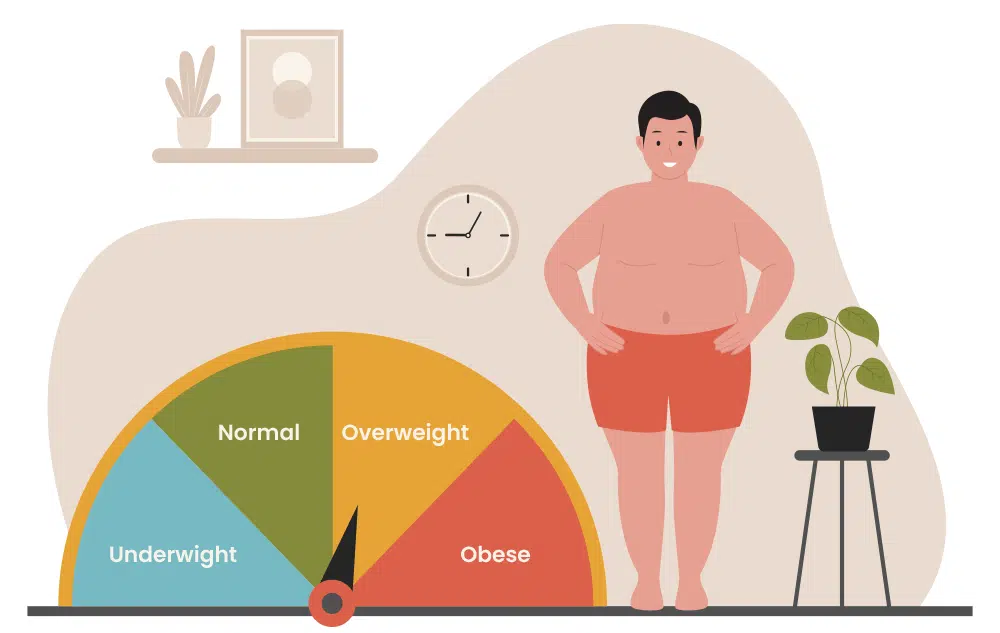
What Happens During and After Gastric Sleeve Surgery
This surgery is typically performed under general anesthesia using minimally invasive techniques such as laparoscopy. During the procedure, small incisions are made in the abdomen, through which a laparoscope and surgical instruments are inserted.
The surgeon carefully removes approximately 75-80% of the stomach, leaving behind a slender tube or sleeve-like structure. This new stomach shape restricts the amount of food it can hold, leading to reduced calorie intake and weight loss.
What to Expect After Gastric Sleeve Surgery
After undergoing gastric sleeve surgery, patients typically stay in the hospital for 1 to 2 days for monitoring before being discharged home. Healthcare professionals closely monitor vital signs, pain levels, and overall recovery progress during this time.
Dietary Modifications and Nutrient Intake Requirements
Following specific dietary guidelines is crucial during this period. After the surgery, patients will experience changes in their digestive system that require adjustments in their eating habits.
Patients are advised to follow a diet progression that gradually introduces solid foods over several weeks. Initially, they start with clear liquids and then progress to pureed foods before finally incorporating regular solid meals into their diet.
This gradual transition allows the body to adjust to its new anatomy while ensuring proper healing and minimizing discomfort or complications.
Patients are encouraged to eat small meals throughout the day instead of consuming large portions at once. This approach helps prevent overeating and ensures proper digestion without causing discomfort.
The smaller stomach size may affect absorption rates for certain vitamins and minerals, necessitating dietary supplements or modified eating habits.
Patients often receive guidance from nutritionists or dietitians who work alongside their healthcare team to develop personalized meal plans that meet their nutritional needs while supporting weight loss goals.
Close Monitoring of Incision Sites
One of the key aspects of postoperative care is close monitoring of the incision sites for any signs of infection or complications.
Patients are advised to keep the incision sites clean and dry to ensure proper healing. It’s essential to follow the healthcare team’s instructions regarding wound care, such as changing dressings regularly and avoiding activities that may put stress on the incisions.
Regular Follow-up Appointments for Ongoing Support
Regular appointments serve multiple purposes, including tracking weight loss progress, addressing nutritional needs, and monitoring for any complications or deficiencies that may arise.
By maintaining a close relationship with the healthcare team, patients can receive ongoing support throughout their weight loss journey.
During these follow-up visits, surgeons and other healthcare professionals assess the patient’s overall health and provide guidance on maintaining long-term success after surgery. They may monitor vital signs, review laboratory test results, and discuss any concerns or challenges faced by the patient. Although this could increase the overall gastric sleeve cost in Turkey, it’s still a highly important thing to follow.
Emotional Adjustment Support
Undergoing gastric sleeve surgery involves significant physical and emotional changes. To assist patients in coping with these adjustments, support groups or counseling services may be available as part of the postoperative care package. These resources provide a safe space for individuals to share their experiences, seek advice from others who have undergone similar procedures and receive emotional support.
Gastric Sleeve Surgery: Significant Weight Loss and Improved Health
One of the primary advantages of gastric sleeve surgery is its ability to result in substantial weight loss. Following the procedure, patients typically experience a significant reduction in their body mass index (BMI), leading to improved overall health.
Obesity-related health conditions such as type 2 diabetes, high blood pressure, sleep apnea, and joint pain often show remarkable improvement or even resolution after gastric sleeve surgery.
By shedding excess pounds, individuals undergoing this procedure can alleviate stress on their joints and reduce inflammation throughout the body, resulting in decreased joint pain and increased mobility.
Furthermore, losing weight through gastric sleeve surgery can lead to improved cardiovascular health by lowering blood pressure levels and reducing the risk of heart disease.
Enhanced Energy Levels and Self-Esteem
Successful weight loss achieved through gastric sleeve surgery often brings about enhanced energy levels and improved self-esteem.
As individuals shed excess pounds and adopt healthier lifestyles post-surgery, they may find themselves with increased vitality and stamina for everyday activities.
Moreover, many patients report a boost in self-confidence following their weight loss journey. Shedding unwanted pounds not only improves physical appearance but also allows individuals to feel more comfortable in their own skin.
This newfound confidence can positively impact various aspects of life, from personal relationships to career opportunities.
Sustainable Long-Term Results
Contrary to popular belief, gastric sleeve surgery is not a quick fix for obesity but rather a tool that, when combined with lifestyle changes, can lead to long-term weight loss. While the surgery itself helps restrict food intake by reducing stomach size, maintaining a healthy weight in the long run requires a commitment to dietary modifications and regular exercise.
By adopting healthier eating habits and portion control, patients can ensure sustained weight loss even years after the procedure.
It is crucial to work closely with healthcare professionals and nutritionists who can guide meal planning and lifestyle adjustments tailored to individual needs.
Holistic Improvement: Beyond Physical Health
The benefits of gastric sleeve surgery extend beyond physical health improvements; it also positively impacts mental well-being and social interactions.
Losing excess weight often leads to improved mental clarity, reduced feelings of depression or anxiety, and increased overall happiness.
Individuals who have undergone gastric sleeve surgery frequently report feeling more comfortable in social settings and experiencing enhanced self-assurance during interactions with others.
This newfound confidence can open doors to new friendships, romantic relationships, and professional opportunities that may have previously seemed out of reach.
When Gastric Sleeve Surgery Doesn’t Yield Desired Results: Exploring Alternatives
Considering Revisional Surgeries or Additional Procedures
In some cases, patients may find that they do not achieve the desired weight loss outcomes after undergoing gastric sleeve surgery.
One possible alternative to explore is revisional surgeries or additional procedures such as gastric bypass or duodenal switch.
Revisional surgeries involve modifying the initial gastric sleeve surgery to enhance weight loss results. These procedures can be particularly beneficial for individuals who have experienced insufficient weight loss, weight regain, or complications following their initial surgery.
By converting the gastric sleeve into a different type of bariatric procedure like gastric bypass, the body’s ability to absorb calories and nutrients can be further reduced, leading to increased weight loss.
Another option is the duodenal switch procedure which combines a partial gastrectomy with intestinal rearrangement. This approach reduces stomach size and reroutes the digestive tract, resulting in significant weight loss.
While these revisional surgeries and additional procedures carry their risks and considerations, they can provide viable alternatives for those who haven’t achieved their desired outcomes with gastric sleeve surgery alone.
Exploring Non-Surgical Options
Apart from revisional surgeries, non-surgical alternatives should also be considered based on individual circumstances. Endoscopic interventions offer minimally invasive techniques that can help address specific concerns related to inadequate weight loss after gastric sleeve surgery.
These procedures involve using an endoscope inserted through the mouth to access and treat certain conditions within the gastrointestinal tract.
For instance, endoscopic suturing can reduce the size of the stomach pouch created during the original surgery if it has stretched over time.
This tightening helps restrict food intake and promotes more effective weight loss. Another endoscopic option is intragastric balloon placement, where a deflated balloon is inserted into the stomach and then filled with saline solution. This temporary balloon takes up space in the stomach, leading to a feeling of fullness and reduced food intake.
In addition to endoscopic interventions, medical management should be considered as part of the alternative options.
This approach may involve working closely with healthcare providers to develop personalized treatment plans that incorporate dietary modifications, exercise regimens, and medication protocols.
By addressing any underlying issues contributing to inadequate weight loss, medical management can help optimize results without the need for additional surgical procedures.
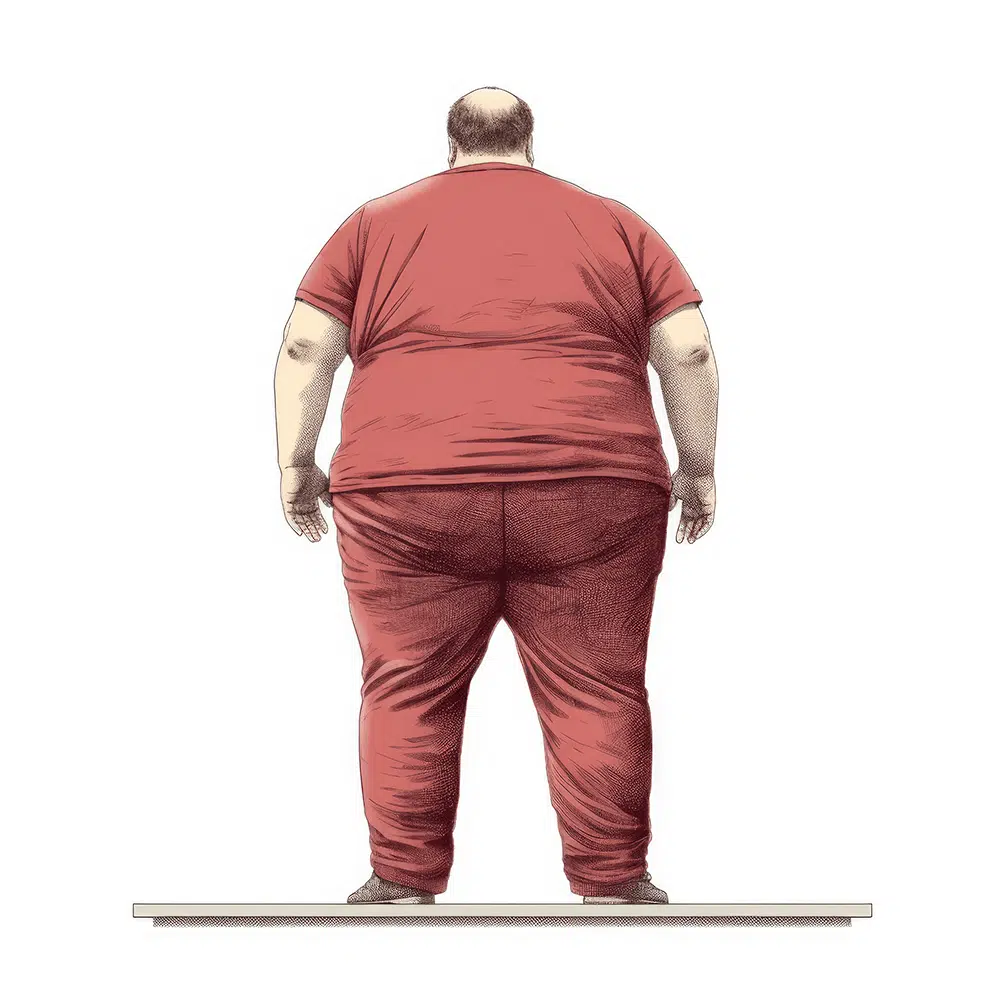
Speak with Board-Certified Surgeons!
Examining the Effectiveness of Different Weight Loss Surgeries
Weight loss surgeries, also known as bariatric surgeries, have proven to be effective in helping individuals achieve significant and sustained weight loss. Here’s an examination of the effectiveness of different weight loss surgeries:
| Weight Loss Surgery | Procedure Description | Effectiveness | Potential Risks |
|---|---|---|---|
| Gastric Sleeve | Removes a portion of the stomach, reducing its size and capacity. | High success rate in weight loss and improvement in health conditions like diabetes and hypertension. | Infection, bleeding, leaks, long-term nutritional deficiencies, and postoperative complications. |
| Gastric Bypass | Creates a small pouch from the stomach, bypassing a section of the small intestine. | Significant weight loss and effective in resolving type 2 diabetes. | Risk of infection, anastomotic leaks, dumping syndrome, nutritional deficiencies, and ulcers. |
| Adjustable Gastric Band | Involves placing a band around the upper part of the stomach to create a small pouch. | Moderate weight loss, reversible procedure, and fewer postoperative complications. | Band slippage, erosion, port-related issues, and potential for inadequate weight loss. |
| Biliopancreatic Diversion with Duodenal Switch (BPD/DS) | Removes a large portion of the stomach and reroutes the small intestine. | Substantial weight loss and improvement in diabetes and lipid profiles. | Malnutrition, vitamin deficiencies, dumping syndrome, and long-term side effects. |
| Intragastric Balloon | Involves placing a deflated balloon in the stomach, which is then filled with saline. | Short-term weight loss solution, non-surgical procedure. | Risk of balloon deflation, gastric irritation, and limited long-term effectiveness. |
Conclusion
One of the most compelling reasons why gastric sleeve surgery is considered safe is its high patient satisfaction rates.
Many individuals who undergo this procedure report positive outcomes due to its effectiveness and safety measures. Losing weight can boost self-esteem and confidence, helping individuals feel more comfortable in their own skin.
In conclusion, gastric sleeve surgery is generally considered a safe and effective weight-loss procedure for eligible candidates.
However, like any surgical procedure, gastric sleeve surgery does carry some potential risks and complications. These may include infection, bleeding, leaks, and long-term nutritional deficiencies.
Gastric sleeve surgery is a serious medical intervention that requires careful consideration, proper patient selection, and comprehensive postoperative care.
With the right approach, gastric sleeve surgery can be a valuable tool in helping individuals achieve their weight loss goals and improve their overall well-being.
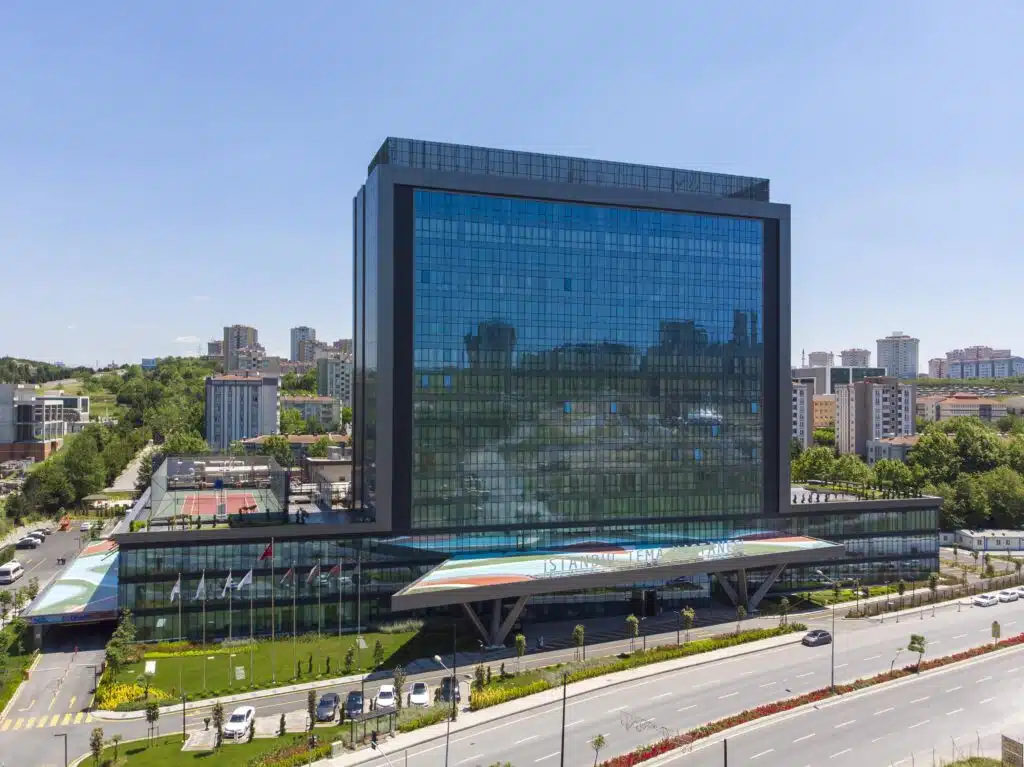
FAQs
The coverage for gastric sleeve surgery varies depending on your insurance provider and specific policy. Some insurance companies do cover this procedure if certain criteria are met, such as having a high body mass index (BMI) or experiencing weight-related health issues. It is recommended to contact your insurance company directly or consult with a bariatric surgeon who can assist you in understanding your coverage options.
Recovery time after gastric sleeve surgery varies from person to person but typically ranges from two to six weeks. During this period, it is important to follow postoperative guidelines provided by your surgeon, including dietary restrictions and gradually increasing physical activity levels. Your surgeon will monitor your progress during follow-up appointments and provide guidance throughout the recovery process.
Yes, adopting a new eating pattern is crucial after gastric sleeve surgery. The procedure reduces the size of your stomach, which means you will feel full more quickly and consume smaller portions of food. A balanced diet that includes lean proteins, fruits, vegetables, whole grains, and limited fats and sugars is recommended. Regular exercise should be incorporated into your daily routine for optimal weight loss and maintenance.
While gastric sleeve surgery is generally safe, there are potential risks and complications associated with any surgical procedure. These can include infection, bleeding, blood clots, leakage from the staple line, narrowing of the stomach opening (stricture), or acid reflux. It is important to discuss these risks with your surgeon before making a decision and to follow all postoperative instructions to minimize the chances of complications.
Weight loss results vary among individuals but typically range between 50% to 70% of excess body weight within the first two years following gastric sleeve surgery. It is important to note that weight loss outcomes depend on various factors including adherence to dietary guidelines, physical activity levels, and individual metabolism. Your healthcare team will provide guidance and support throughout your weight loss journey.
Yes, it is possible to become pregnant after gastric sleeve surgery. In fact, many women experience improved fertility as they lose weight following the procedure.
Read more: Obesity Surgery Cost in Turkey


